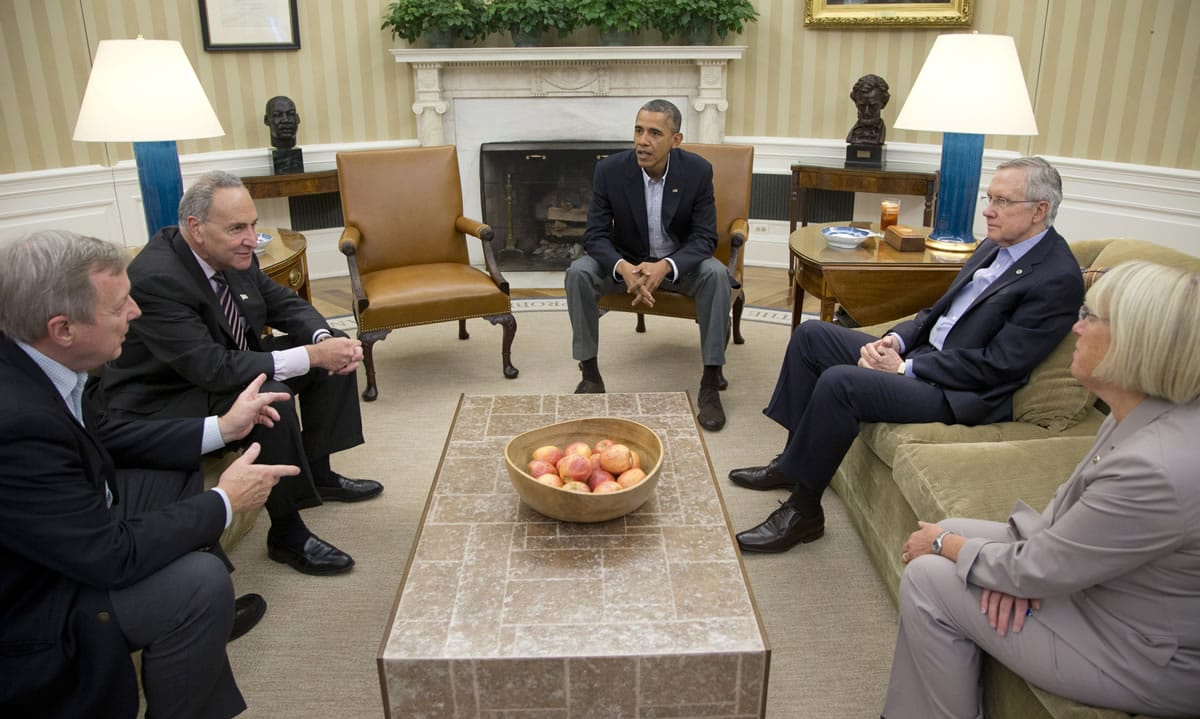WASHINGTON — President Barack Obama can only do so much to help his party in this year’s midterm elections. Six years in office have taken a toll on his popularity, and aside from raising money, his value on the campaign trail is limited — especially in the states that worry Democrats the most.
But the president can set the tone. In his State of the Union address on Tuesday, Obama will frame an economic argument his party hopes will help carry them to victory in November. Although not explicitly political, the speech gives Obama an opportunity to issue a rallying cry for economic fairness and expanded opportunity — issues Democrats believe will resonate in races across the country.
“It will be interpreted as the Democratic agenda,” said Celinda Lake, a Democratic pollster. “He can frame up the 2014 choice.”
That choice, as Obama portrays it, is between an America where all segments of the population have opportunities to improve their lot and one where prosperity is disproportionately enjoyed by a select few. In the run-up to the State of the Union, Obama has persistently sought to focus the nation’s attention on trends of inequality and lower social mobility that he’s pledging to address in his final years in office.



